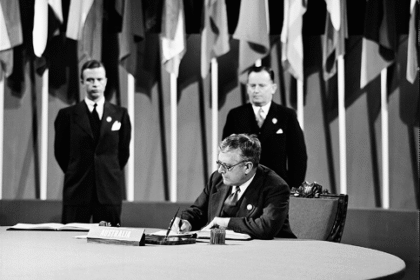Rising Support for Socialism Among College Students: A Poll Analysis
A recent survey conducted by the William F. Buckley Institute at Yale University has revealed a significant trend among college students: a growing preference for socialism over capitalism. This finding raises questions about the ideological landscape of American higher education and its implications for future generations.
Survey Findings: A Shift in Economic Preferences
The poll, which surveyed 820 undergraduate students from various four-year colleges across the United States, found that nearly half-46%-of respondents agreed with the statement, “While socialist countries like Cuba and the Soviet Union have not been perfect, they offer a better economic model than capitalist countries like the United States.” In contrast, 39% disagreed, asserting that capitalism remains the superior economic system, while 15% were uncertain.
Interestingly, when asked which economic system they would prefer to live under, the results were closely contested. Approximately 40% of students expressed a slight preference for capitalism, while 36% favored socialism, leaving a notable 24% undecided. This division highlights a complex relationship with economic ideologies among the youth.
Ideological Divides: Liberals vs. Conservatives
The survey also revealed stark ideological divides. Among self-identified liberal students, 58% supported the notion that socialism is a better economic model than capitalism. Conversely, 63% of conservative students rejected this idea, favoring free-market principles. This polarization reflects broader national trends, where support for socialism has been rising, particularly among younger demographics and Democrats.
The implications of these findings are significant. They suggest that a substantial portion of the future workforce may lean towards socialist ideals, potentially influencing policy and economic decisions in the years to come.
Violence and Free Speech: A Disturbing Reality
One of the more alarming findings from the survey was that nearly 40% of students believed physical violence could be justified to prevent someone from expressing hateful opinions. This sentiment has raised concerns among researchers, particularly in light of recent violent incidents involving political figures. Lauren Noble, the founder and Executive Director of the Buckley Institute, described this trend as “disturbing,” emphasizing that while students may support free speech in theory, their actions suggest otherwise.
The survey also indicated a troubling lack of tolerance for differing viewpoints. Approximately 46% of students agreed that they could not be close friends with someone from a different political party. This figure was even higher among liberal students, with 64% expressing discomfort in forming friendships with those holding opposing views.
Broader Issues: Immigration, Gender, and Racial Equality
The survey did not stop at economic preferences; it also explored students’ views on various social issues. A significant 90% of respondents supported some form of deportation for individuals who entered the country illegally, with 70% backing removal for those who have committed violent crimes. This perspective contrasts sharply with the more liberal stance often associated with college campuses.
On the topic of gender and sports, 61% of students opposed transgender athletes competing against biological females, citing concerns about fairness. This issue has become increasingly contentious in recent years, reflecting broader societal debates about gender identity and rights.
When it comes to racial equality, students were divided. While 47% believed that the U.S. is making progress toward equality, 48% felt that the country remains tied to its history of white supremacy. This division underscores the complexity of racial issues in America, particularly among younger generations.
Housing and Economic Concerns
The survey also highlighted concerns about the capitalist system, particularly regarding housing. A striking 70% of students expressed support for rent control, indicating a desire for government intervention in the housing market. This sentiment aligns with proposals from some political figures, such as New York City mayoral nominee Zohran Mamdani, who has advocated for government-run grocery stores to improve access and lower costs.
Interestingly, while students showed support for rent control, they were less favorable toward the idea of replacing private grocery stores with government-run alternatives, with a 47% to 42% margin against such a proposal.
Conclusion: A Complex Landscape Ahead
The findings from the Buckley Institute’s survey paint a complex picture of the current ideological landscape among college students. With a notable shift towards socialism, increasing tolerance for violence against opposing views, and a mix of opinions on critical social issues, the future of American higher education appears to be at a crossroads.
As these students prepare to enter the workforce and take on leadership roles in society, their beliefs and values will undoubtedly shape the political and economic landscape of the nation. The challenge for educators and policymakers will be to foster an environment that encourages open dialogue and critical thinking, ensuring that the ideals of free speech and diverse perspectives remain central to the educational experience.











